Choosing the right property manager in Montreal is one of the most important decisions you’ll make as a real estate investor. A great manager protects your investment, preserves building value, reduces vacancy, completes repairs on time, and handles the day-to-day tasks that most investors simply don’t have time for. The right partner supports long-term wealth, while the wrong one can quietly drain your returns.
Montreal is a unique rental market. Older building stock, multi-lingual tenants, neighbourhood-specific rental demand, strict regulations, and changing rental patterns mean you need a manager who understands the city, not just property management in general. Before hiring a team, you need to know exactly what they bring to the table.
Here are the 10 essential questions smart investors ask before hiring property managers in Montreal, along with helpful insights to make the right decision.
1. How Long Have You Been Managing Properties in Montreal?
Experience in Montreal specifically matters.
A manager who has been working here for years understands neighbourhood-level trends, seasonal rental demand, tenant expectations, and the quirks of older Montreal buildings.
For example:
An experienced manager knows that a duplex in Rosemont rents differently from a unit in Downtown. They understand how heating systems in older triplexes behave in winter, what problems usually arise in pre-war buildings, and how quickly units turn over in different parts of the city.
This local knowledge leads to better decision-making and fewer surprises.
2. What Types of Properties Do You Specialize In?
Every building type comes with its own challenges.
A company specializing in residential property management might focus on tenant relations, while managers handling multi-residential buildings or mixed-use properties deal with more complex logistics.
Choosing a firm already familiar with your property type means:
- Better rent-setting strategies
- Faster leasing
- More accurate maintenance planning
- A better understanding of tenant behavior
If they manage buildings similar to yours, they already know what works and what doesn’t.
3. How Do You Screen Tenants?
A property is only as strong as the people living in it.
Strong tenant screening is the first line of defense against missed rent, unpaid invoices, or conflict.
A reliable property management Montreal team should check:
- Proof of income
- Credit history
- Employment stability
- Previous landlord references
- Personality and communication
- Fit for your building
Good screening reduces turnover, avoids unpaid rent, and helps create a stable rental environment where both owners and tenants feel secure.
4. How Do You Handle Maintenance and Emergency Repairs?
Maintenance is a major part of the management of properties in Montreal, especially given the age of many buildings. You need a manager who not only reacts quickly but also plans.
A well-structured company will:
- Perform routine preventive inspections
- Maintain an updated list of trusted contractors
- Provide clear estimates and timelines
- Communicate with tenants professionally
- Handle emergency issues 24/7
5. What Is Your Fee Structure and Exactly What’s Included?
Not all property management companies in Montreal include the same services in their monthly fee.
Some charge extra for inspections, lease renewals, or arranging repairs.
Ask for a detailed breakdown:
- Monthly management cost
- Leasing or tenant placement fees
- Maintenance coordination fees
- Eviction processing
- Accounting and reporting
- Emergency services
A transparent fee structure helps you calculate true cash flow and ensures you never get hit with unexpected charges.
6. How Do You Manage Rent Collection and Financial Reporting?
Money handling must be professional and consistent.
A strong property manager uses modern systems to:
- Collect rent on time
- Send automatic reminders
- Track payment history
- Maintain financial records
- Provide monthly owner statements
- Handle deposits and receipts
Reliable financial reporting gives you real visibility into how your property is performing and simplifies tax season significantly.
7. How Often Do You Inspect the Property?
Properties deteriorate quickly if they’re only inspected when something breaks.
Consistent inspection schedules allow managers to identify minor issues before they escalate into expensive repairs.
Good property management includes:
- Move-in inspections
Seasonal inspections - Preventive maintenance checkups
- Move-out evaluations
This ensures your property stays in top shape and the tenant’s responsibilities are clearly documented.
8. What’s Your Approach to Rent Adjustments and Tenant Retention?
Montreal’s rental regulations, combined with market pressure, require managers to strike a balance between legal rent increases and tenant satisfaction.
A smart property manager will:
- Study neighbourhood-level market rent
- Apply increases within legal guidelines
- Keep communication open and professional
- Offer incentives that encourage long-term tenants
Keeping good tenants is more profitable than constant turnover. A manager who understands this will build stronger, more stable revenue for your property.
9. How Do You Handle Emergencies or After-Hours Situations?
Emergencies can cost you thousands if mishandled.
From burst pipes to heating failures in January, you need a management company with a reliable, 24/7 emergency response system.
They should have:
- Clear communication channels
- Fast contractor dispatch
- Strong problem-solving procedures
- Documentation for every emergency
A manager who responds immediately protects your property and prevents tenant frustration.
10. Can You Provide References From Current Clients?
There is no better test than talking to other owners.
You’ll learn whether the manager is transparent, responsive, and dependable if they create more problems than they solve.
Look for consistency in client feedback:
- Are tenants satisfied?
- Are repairs handled efficiently?
- Are financial reports accurate?
- Is communication easy and professional?
Good property managers are proud of their client relationships and willing to share references.
Why Asking These Questions Leads to Better Investment Outcomes
Real estate investors who choose wisely enjoy smoother operations, fewer surprises, and more consistent revenue. The right property manager is like a long-term partner; they protect your building, help it grow in value, and shield you from the stress of daily operations.A strong real estate management Montreal team gives you peace of mind and allows you to scale your investments with confidence.





